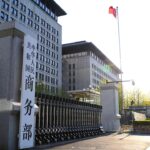War films are one of the most awe-inspiring and emotionally powerful genres in commercial cinema. Classic Western war films, mainly from Hollywood, often depict individual human concerns and reflections on war, sometimes with an epic touch that allows countless viewers and fans to experience both the brutality of war and the brilliance of human nature.
Yes, humanity should cherish peace. However, peace cannot rely solely on the morality of others. Only by surpassing the strength of the enemy can we truly put an end to warfare.
China has produced many outstanding films and television works depicting the War to Resist US Aggression and Aid Korea (1950-53), such as films The Sacrifice, The Battle at Lake Changjin, and TV drama Medal of the Republic.
These works often focus on specific battles or highlight heroic fighters, but they generally lack a comprehensive narrative that explains the historical necessity and macro-level factors of China’s participation in the war.
The appearance of The Volunteers trilogy fills this gap. It constructs its narrative through three parts, providing a panoramic display of China’s participation in the war and retelling history from the perspective of individuals to that of the nation. It aims to explain to the audience, especially the younger generation, why the Chinese soldiers had to fight in the war.
The Korean War was not simply a civil war between North Korea and South Korea. UN forces led by the US crossing the 38th parallel symbolized an imminent threat to China’s national interests and also demonstrated the fact that China needed to safeguard its own interests with foresight and insight.
Sending troops to Korea was one of the most difficult decisions to make in Chairman Mao Zedong’s lifetime. As the newly established People’s Republic of China was preparing for industrialization in its three northeastern provinces, not sending troops would seriously threaten China’s interests.
The first film in the trilogy, The Volunteers: To The War, considers the war in the context of the Cold War and succinctly explains why sending troops to Korea allowed China to “throwing one punch to avoid 100 punches.”
At the beginning of the film, there are a few short scenes that lightly touch upon Chairman Mao’s first visit to the Soviet Union and his hope for assistance from the Soviet Union for domestic industrial and economic development. However, the Soviet Union did not express a clear intention to provide support. Both the US and the Soviet Union seemed to want to push forward their respective national interests through the outbreak of the Korean War. This placed China in a predicament between the two major camps after the World War II. If China could not safeguard the security of its borders, it would be unable to stand independently among the nations of the world.
An article published on Wednesday by Voice of America critiquing the film is absurd. The film goes beyond simply depicting “violence and bloodshed,” as it clearly demonstrates that resisting US aggression and aiding Korea was not just a “patriotic slogan” but the highest tribute to the most admirable people.
Worth mentioning is the portrayal of the Chinese delegation attending the UN Security Council meeting, which earned the country honor. This part of the story is rarely covered in previous films on the same topic. This is because the War to Resist US Aggression and Aid Korea was not just a war of national establishment for the PRC, it was also a spiritual baptism for the Chinese nation. It was crucial for the new Chinese government to gain legitimacy and recognition in the hearts of Chinese people worldwide.
In the film, when a returning military-industrial expert vividly demonstrates the stark power disparity between China and the US to the then Chinese premier Zhou Enlai, the expert sincerely asks why they would “use eggs to hit rocks” when faced with facts and data. Zhou gives the most genuine answer: “If we don’t fight, China will once again lose the opportunity for survival.”
Indeed, the fundamental key to the victory of the War to Resist US Aggression and Aid Korea lies in the unwavering belief of the Chinese people in safeguarding their national interests and survival. After highlighting this core belief, the film portrays different perspectives of various characters and links the preparation for battles to every soldier of the Chinese People’s Volunteers.
From Commander Peng Dehuai to the Red Army veteran Li Moyi, from the three brother comrades in the same squad to Mao Anying, eldest son of Chairman Mao, the film weaves together different narrative threads, showcasing the sacrifices made for peace and survival, showing us why the military spirit of the Chinese People’s Volunteers deserves to be remembered.
(Global Times)


